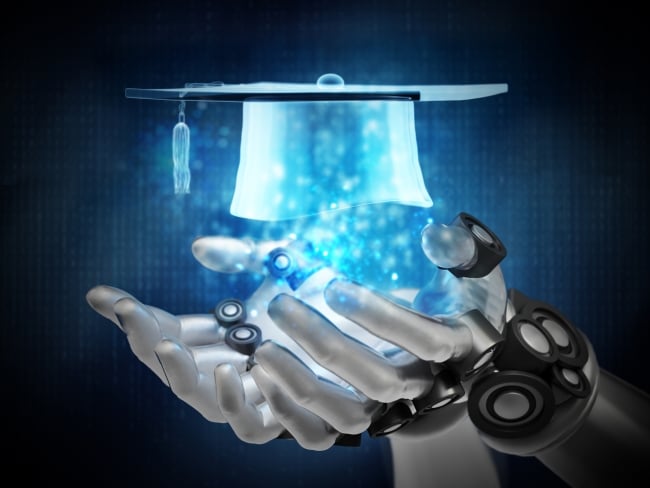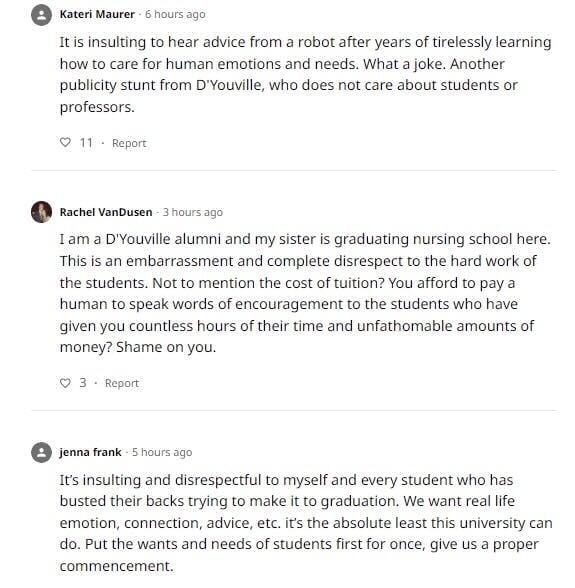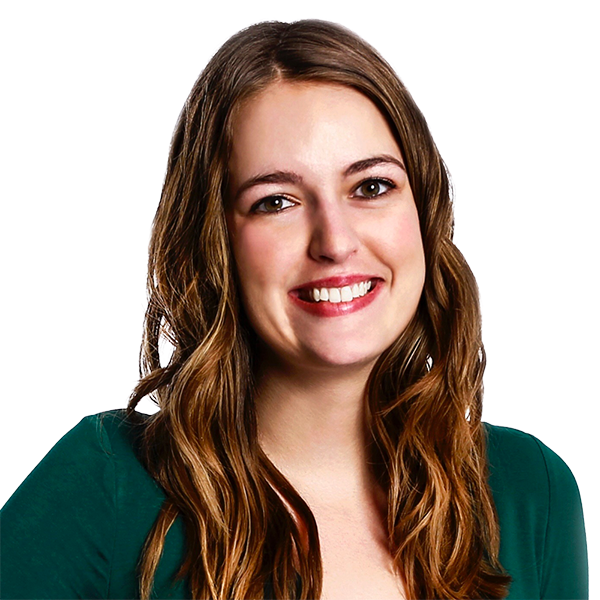You have /5 articles left.
Sign up for a free account or log in.

D'Youville University has announced a robot will serve as its commencement speaker this year.
Getty Images
Each year, D’Youville University, a small, private institution in upstate New York, strives to bring in a commencement speaker to address a topic that’s both timely and relevant to its roughly 500 graduates.
Past topics have run the gamut, including gender equity and the opioid epidemic. This year, the obvious choice was artificial intelligence, said Lorrie Clemo, its president.
“AI seemed to be a clear topic among our student body and senior leadership,” Clemo said. “Then it was, ‘Okay, if we want to feature AI, who’s the best speaker to cover the topic?’ We needed someone to represent AI to make it very visual.”
Enter Sophia, a humanoid robot first launched in 2016 from Houston-based Hansen Robotics. The Buffalo university announced Wednesday it would bring Sophia to speak at its May 11 commencement ceremony.
“With Sophia being a robot and powered by AI, we thought it would be a nice combination,” Clemo said.
Not everyone agreed: A number of students, alumni and Buffalo community members were shocked by the news. When Andrew Fields first saw a fellow D’Youville student post in an Instagram story that the university would feature a robot at commencement, he and his friends assumed it was fake.
“We were sitting on the couch watching T.V., and just started laughing, but then reality began to sink in,” he said. “Students didn’t find out from an email; we found out through news articles.”
Fields, an occupational therapy student graduating next year from D’Youville, joined two nursing students to create a petition on Change.org that night. Fields is a pseudonym for the student, who was concerned about the university’s code of conduct being used against him for filing the petition.
The three students implored university administration to pick a human —“literally anyone, really,” Fields told Inside Higher Ed—instead of Sophia. As of mid-Thursday afternoon, the petition garnered close to 1,100 signatures.
“Our institution is huge with health care professionals, and I just think the emphasis of everything we’ve worked toward is so personal and humanistic,” Fields said. “Health care professionals as a whole have been moving away from a medical model to a more person-centered model and this is just not reflective of the things we’ve learned.”

Close to 1,100 students, alumni and community members signed a petition less than 24 hours after D'Youville University announced it would have a robot as its commencement speaker.
Change.org
While Sophia is not giving a commencement speech per se—the AI will be interviewed by the student body president John Rizk—students balked that Rizk is not a graduating senior.
“D’Youville could’ve done something really great with the robot—even a Ted Talk—I just don’t think [commencement] is the time or place for it,” Fields said. “It’s not like students are even hearing from a graduate in their own class.”
Rizk acknowledged that some students are apprehensive about the commencement speaker choice, but said he believes the future-looking focus is perfect timing for graduates.
“I believe this is the right step into the future and it’s a very a time to have students witness a peek into their future, as they close their chapter on university careers and open a new chapter in the future,” he said.
He pointed to the fact Sophia is a citizen of Saudi Arabia, has visited 65 countries and spoken to the United Nations. Rizk was tight-lipped on what his Q&A with Sophia would actually touch on, but said it would be “a great experience and unforgettable.”
“For those that have been to other commencements, people rarely remember who spoke and what they said—this time will be different,” he said.
Clemo added she does not know exactly what Sophia will cover, just that Sophia was prepped with statistics about D’Youville’s students, mission and its focus on health care.
“We’re hoping the robot will talk about how the technology will improve health and wellness in today’s world,” she said.
Once students hear Sophia, Clemo said, she hopes they may change their mind about her.
“They’ll realize maybe the issue isn’t as polarizing as the initial announcement,” she said. “It’s a great opportunity to sort through the opportunities, limitations and what guardrails have to be put in place with new technology.”





